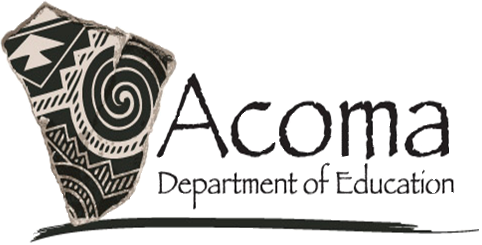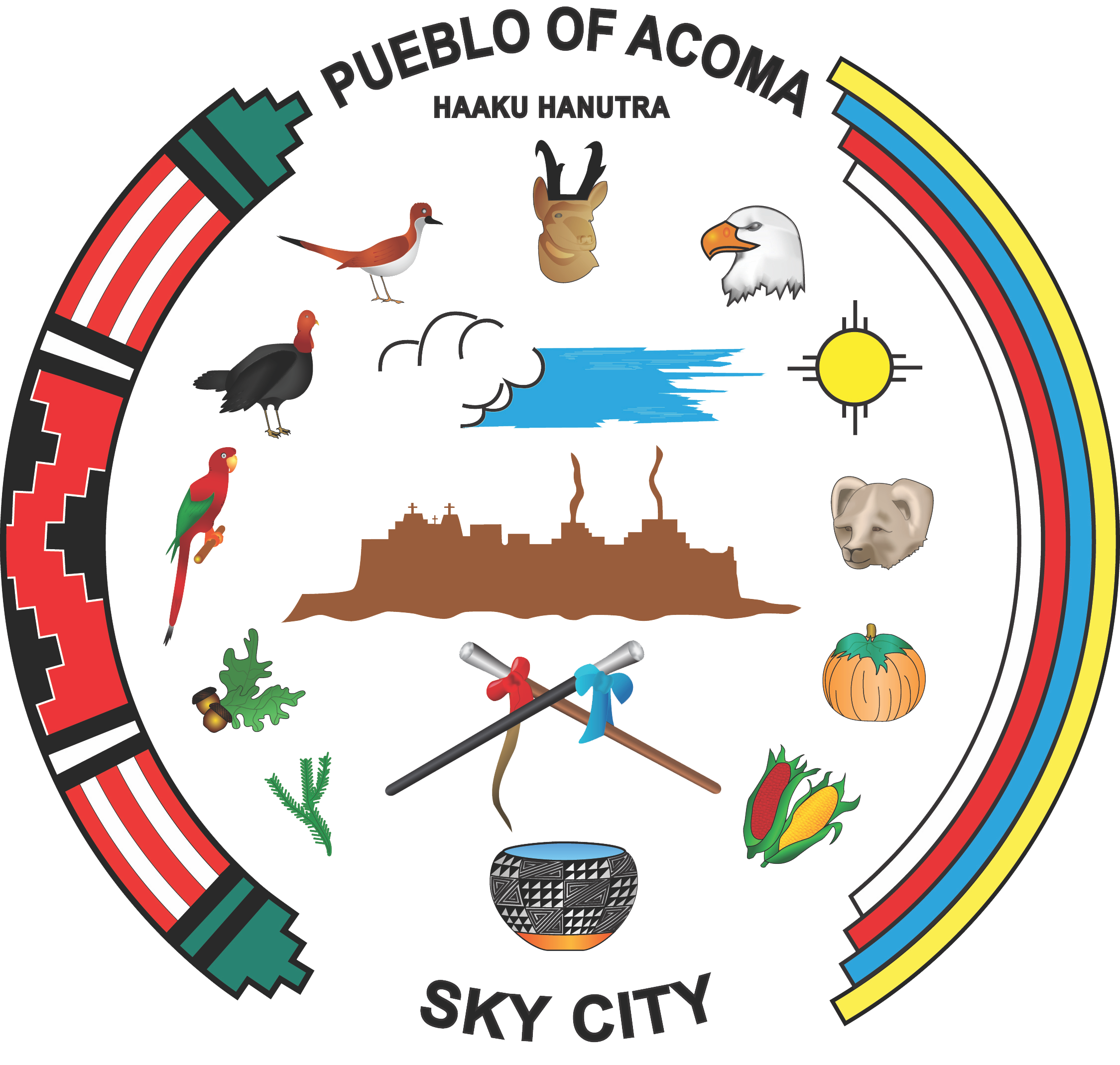Workforce Innovation and Opportunities Act
- Home
- Departments
- Department of Education
- Workforce Innovation and Opportunities Act

Contact Information
Phone
505-552-5136
Email
nvaldo@poamail.org
Mailing Address
PO Box 307, Acoma, NM 87034
Physical Address
49 Pinsbaari Drive, Acoma, NM 87034
Office Hours
Monday – Saturday
8:00 AM – 4:30 PM
WIOA Staff
Nolan Valdo, Employment & Training Coordinator
Youth Workforce Application
Explore Section & Events
Workforce Innovation and Opportunities Act (WIOA)
Mission
The Pueblo of Acoma Workforce Development Program will help job seekers and workers access employment, education, training, and support services to succeed in the labor market and match employers with skilled workers needed to compete in the global economy.
Vision
Practice from the past, learn and work in the present, to gain access to the future!
Purpose
The Pueblo of Acoma Workforce Development Program, is funded through the U. S. Department of Labor, Division of Indian and Native American, Section 166 (INA – Sec. 166) Programs.
Workforce Development Program offers income eligible Native American Indians living within the Pueblo of Acoma Reservation boundaries the opportunity to become more competitive in today’s workforce.
The Workforce Development Program promotes independent economic and social self-sufficiency according to the goals and values of the Pueblo of Acoma workforce community by providing Employment & Training in the following programs:
Comprehensive Services Program (CSP)
The Comprehensive Services Program (CSP) assists individuals in preparing to enter the labor market through core services; allowable intensive services; training services; job development and employment out-reach.
Supplemental Youth Services Program (SYSP)
The Supplemental Youth Services (SYS) program assists youth in preparing to enter the labor market through work-experience skills and training necessary to nurture, strengthen and motivate the participants to seek higher education and/or vocational training in the future. This includes participation in the Pueblo of Acoma Summer Youth Service Program (SYSP).
Each Workforce Development Program participant’s success will begin to focus on the importance of establishing a Career Pathway through the exploration, commitment of time, effort, and patience to reach their established goals. Listed the below are outcomes the Workforce Development Program will help individuals obtain.
- The acquisition of basic academic skills for participants who lack such skills as their first step toward achieving their employment goals.
- Providing activities and services that will lead to long term employability and increased earnings for program participants.
- Placement of participants into skills training programs for occupations that are in high demand within the local labor market.
- The attainment of a recognized credential relating to achievement of educational skills, or occupational skills.
- The utilization of public or private post-secondary schools for Occupational Skills Training.
- Utilizing private employers for On-the-Job Training services to bridge the gap of the significant numbers of unskilled, untrained job seekers.
Each Individual’s ability to meet an educational or career goal starts with the commitment and self-determination of success throughout their program participation.
Workforce Development Services
The Workforce Development Program will assist individuals in preparing to enter the labor market through our six (6) main services which are listed below. The Workforce Development program will serve eligible participants after an applicant’s intake status screening is complete and all eligibility criteria is submitted.
After the application and intake process, the client is counseled as to the best approach to take in regard to employment or skill attainment. All required documentation must be in the clients file before services are rendered.
The program will serve all eligible individuals who are members of federally recognized tribes living within the Pueblo of Acoma Workforce Innovation & Opportunity Act service area.
The six (6) services generally provided are:
- Work Experience (WEX)
- Classroom Training (CRT)
- On-the-Job Training (OJT)
- Core Services
- Supportive Services
- General Services
- Work Experience (WEX)
Work Experience is a short-term, full or part-time work assignments designed to develop a participant’s working skills and habits. Work sites are located throughout the Pueblo of Acoma Tribal Programs. All work experience participants receive a base rate at the current Federal or State minimum wage (whichever is higher) per hours worked. Work experience participants receive taxable wages and are eligible to receive Supportive Services.
There are three (3) Work Experience Categories:
- Adult Work Experience – Adults 18 and older who meet the WIOA income and eligibility criteria. (HHS Poverty Guidelines)
- Youth Work Experience (Annual) – In school youth, 14 to 24 years old who meet the WIOA income and eligibility criteria? (HHS Poverty Guidelines)
- Summer Youth Work Experience (exclusive to Summer) – Youth who meet the WIOA income and eligibility criteria. (HHS Poverty Guidelines) Also must not be failing any required core classes for students in grades 9 through 12.
- Classroom Training (CRT)
There are three (3) types of Classroom Training (CRT) available. CRT’s are always provided in an institutional setting. (i. e. colleges, vocational centers, community education centers, etc.)
- Occupational Skill Training
- College (up to Associates Degree)
- Vocational Training
- Vocational Certification
- Adult Basic Education
- HSE Preparation
- HSE Classroom Training
- HSE Testing Fees
- Assistance for High School Completion (Traditional Student)
- Services may include credit recovery assistance
There are three (3) Work Experience Categories:
- Adult Work Experience – Adults 18 and older who meet the WIOA income and eligibility criteria. (HHS Poverty Guidelines)
- Youth Work Experience (Annual) – In school youth, 14 to 24 years old who meet the WIOA income and eligibility criteria? (HHS Poverty Guidelines)
- Summer Youth Work Experience (exclusive to Summer) – Youth who meet the WIOA income and eligibility criteria. (HHS Poverty Guidelines) Also must not be failing any required core classes for students in grades 9 through 12.
- On-The-Job Training (OJT)
On-the-Job Training (OJT) is training in the public or private sector, provided to a participant by an employer. The employer hires the participant and there should be reasonable assurance that the employer will retain the participant once the training is completed.
Potential OJT employers are recruited and carefully reviewed by the Training & Employment Coordinator. Consideration is given to, and attention paid to, the past experience of employment and training programs with the prospective OJT employers and to the long-term employment possibilities with that employer for program participants. The length of time a participant may spend in an OJT position will depend upon the type of training to be received and the training needs of the participant. The goal of the program is to ensure that training will not be excessive, but that the participant will have reached skill proficiency by completion of the training. OJT positions may be full or part-time employment, but the emphasis must be on securing a position that will enable the participant to be self-sufficient.
On-the-Job Trainings are rarely provided to participants, and can be confused with the Work Experience (WEX) program services which fall under the Intensive Service category of Workforce Development Program services provided. The difference between the two is that the Work Experience (WEX) program provides a simple form of training to participants whom wish to acquire job training at the most basic entry in the public or private sector.
The employer may be reimbursed up to 50% of the participant’s wages excluding fringe benefits during the OJT. OJT participants are eligible to receive Supportive Services and Training Costs.
Occupations where OJT is not considered acceptable are:
- Occupations depending on commission as the primary income source
- Sewing machine operations (garment and apparel industry)
- Intermittent seasonal occupations requiring licenses.
- Professional occupations requiring licenses.
- Occupations dependent on tips or gratuities as the primary income source.
- Bartenders
- Core Services
The two levels of Core Services are:
- Basic Core Services – Basic Core Services are strictly informational and self-assisted. Which include the Distribution of labor market trends, the unemployment rate, job announcements, training announcements and any information relating to the current job market. Any applicant who receives this basic level of service will not require significant staff involvement. Eligibility certification or program enrollment for the WIOA program is not required.
- Qualifying Core Services – Qualifying Core Services include significant staff involvement in providing assistance beyond the informational activities in a Basic Core Service. Regardless of the length of time involved, a staff member determines an applicant’s eligibility and enrolls the applicant for a participant status.
At enrollment, the Training & Employment Coordinator or staff member conducts an assessment of a participant’s skills, education or career objectives in order to provide any of the following services:
- Assist participants in deciding on appropriate next steps in the search for employment, training, and related services including job referral.
- Assist participants in assessing their personal barriers to employment.
- Assist participants in accessing other related services necessary to enhance their employability and individual employment related needs.
Potential OJT employers are recruited and carefully reviewed by the Training & Employment Coordinator. Consideration is given to, and attention paid to, the past experience of employment and training programs with the prospective OJT employers and to the long-term employment possibilities with that employer for program participants. The length of time a participant may spend in an OJT position will depend upon the type of training to be received and the training needs of the participant. The goal of the program is to ensure that training will not be excessive, but that the participant will have reached skill proficiency by completion of the training. OJT positions may be full or part-time employment, but the emphasis must be on securing a position that will enable the participant to be self-sufficient.
On-the-Job Trainings are rarely provided to participants, and can be confused with the Work Experience (WEX) program services which fall under the Intensive Service category of Workforce Development Program services provided. The difference between the two is that the Work Experience (WEX) program provides a simple form of training to participants whom wish to acquire job training at the most basic entry in the public or private sector.
The employer may be reimbursed up to 50% of the participant’s wages excluding fringe benefits during the OJT. OJT participants are eligible to receive Supportive Services and Training Costs.
Occupations where OJT is not considered acceptable are:
- Occupations depending on commission as the primary income source
- Sewing machine operations (garment and apparel industry)
- Intermittent seasonal occupations requiring licenses.
- Professional occupations requiring licenses.
- Occupations dependent on tips or gratuities as the primary income source.
- Bartenders
- Supportive Services
Supportive Services are assistance for the newly employed individuals and used strictly for sustaining employment.
Supportive Services may provide assistance depending on the participant’s assessment of need.
The Workforce Development Program can help with:
- Tools
- Work Clothes/Uniforms, Shoes/Boots
- Transportation
- Eyeglasses
- Other necessary items to maintain employment.
- General Services
Participants may request assistance in general service areas, but must have a focus on a career or job attainment goal. These services are tailored to the need of each individual at the time of need. The Training & Employment Coordinator will schedule these individualized services on an as needed basis.
Other Services include, but are not limited to, the following:
- Cover letter and resume writing
- Letters of Reference or Recommendation
- Basic Computer Skills Assessments
- Basic Employment Skills Assessments
- Basic Career Assessment
- Job Search
- Job Readiness Preparation
- Assistance in filling out employment applications
- Assistance in filling out college forms such as FAFSA and scholarship applications.
